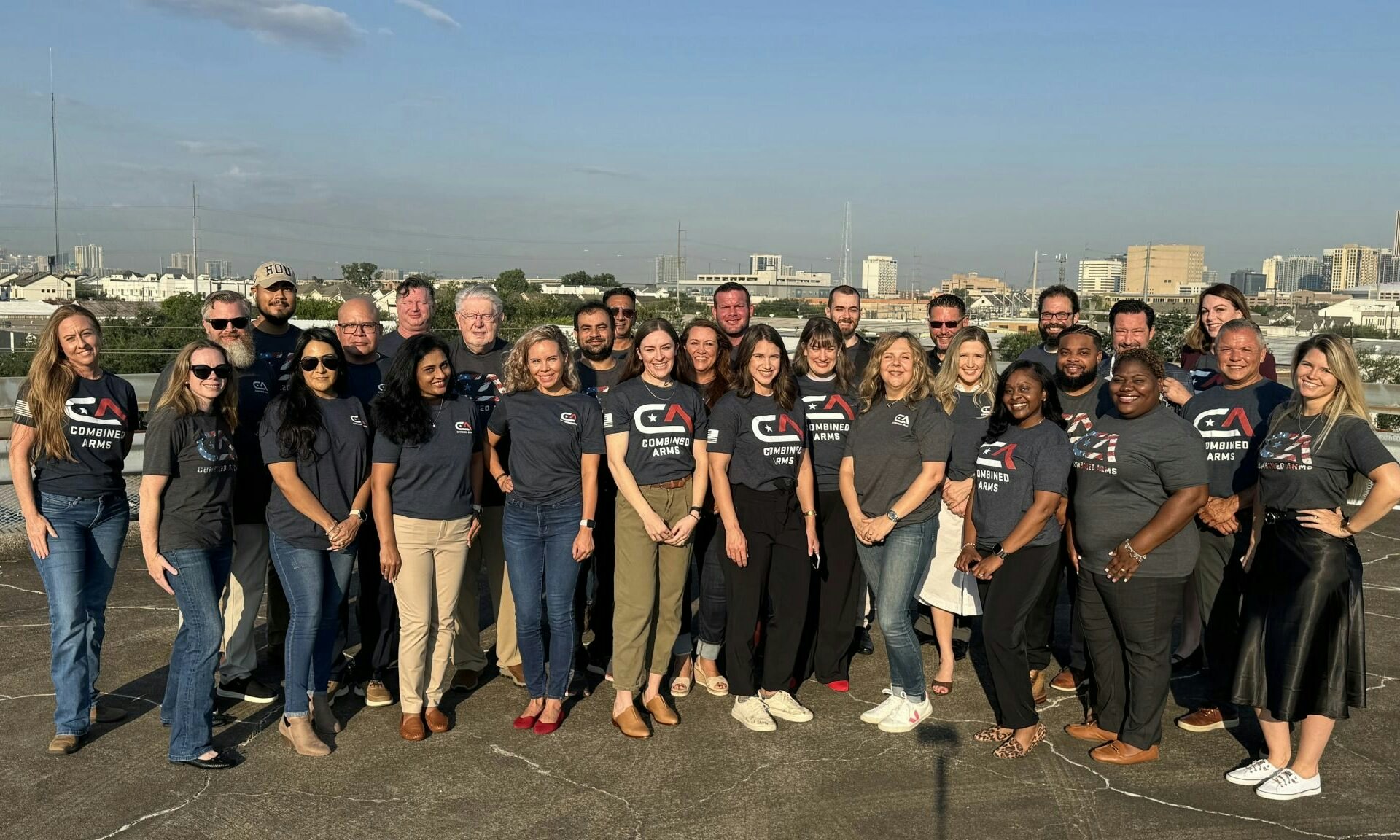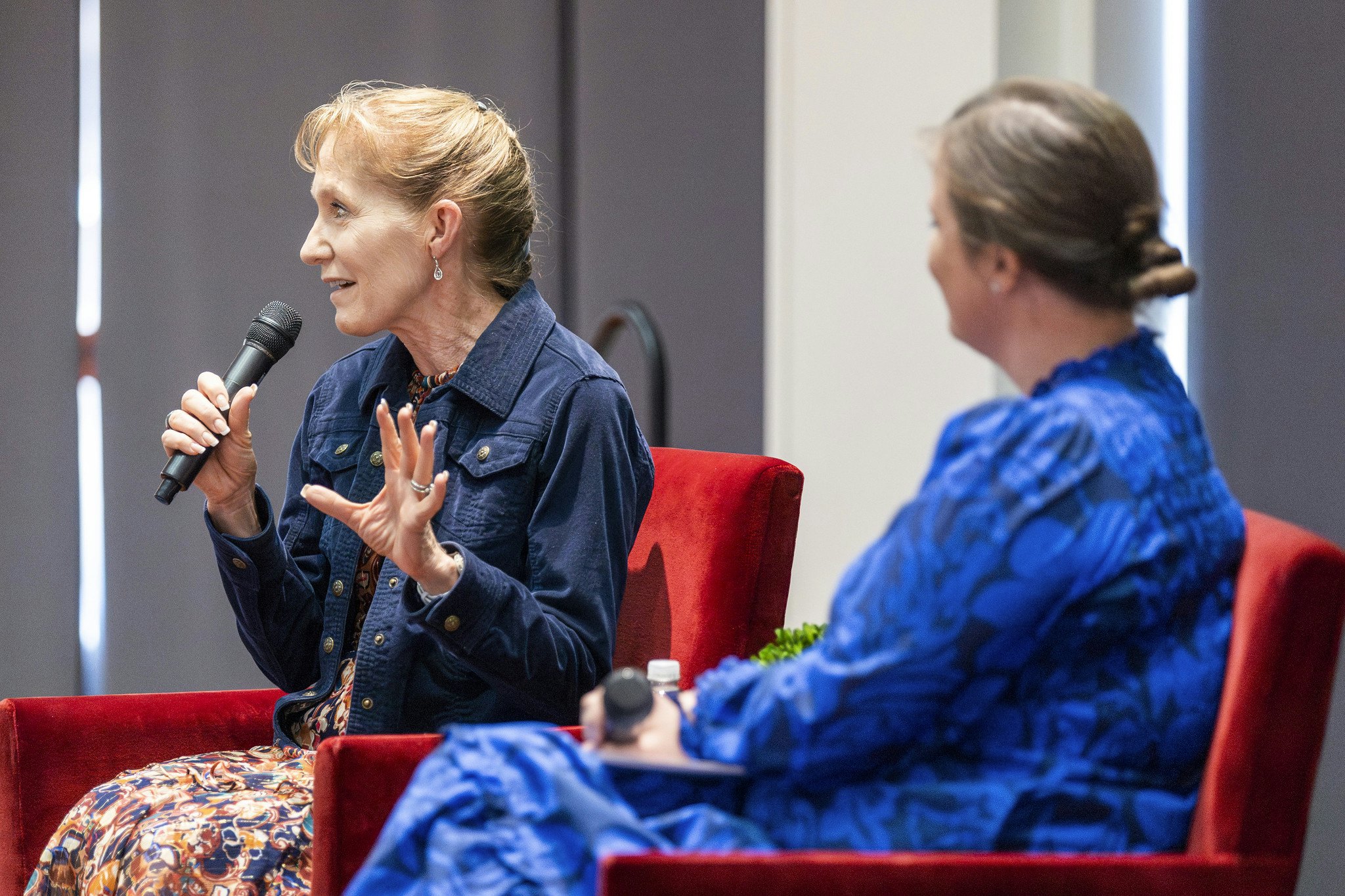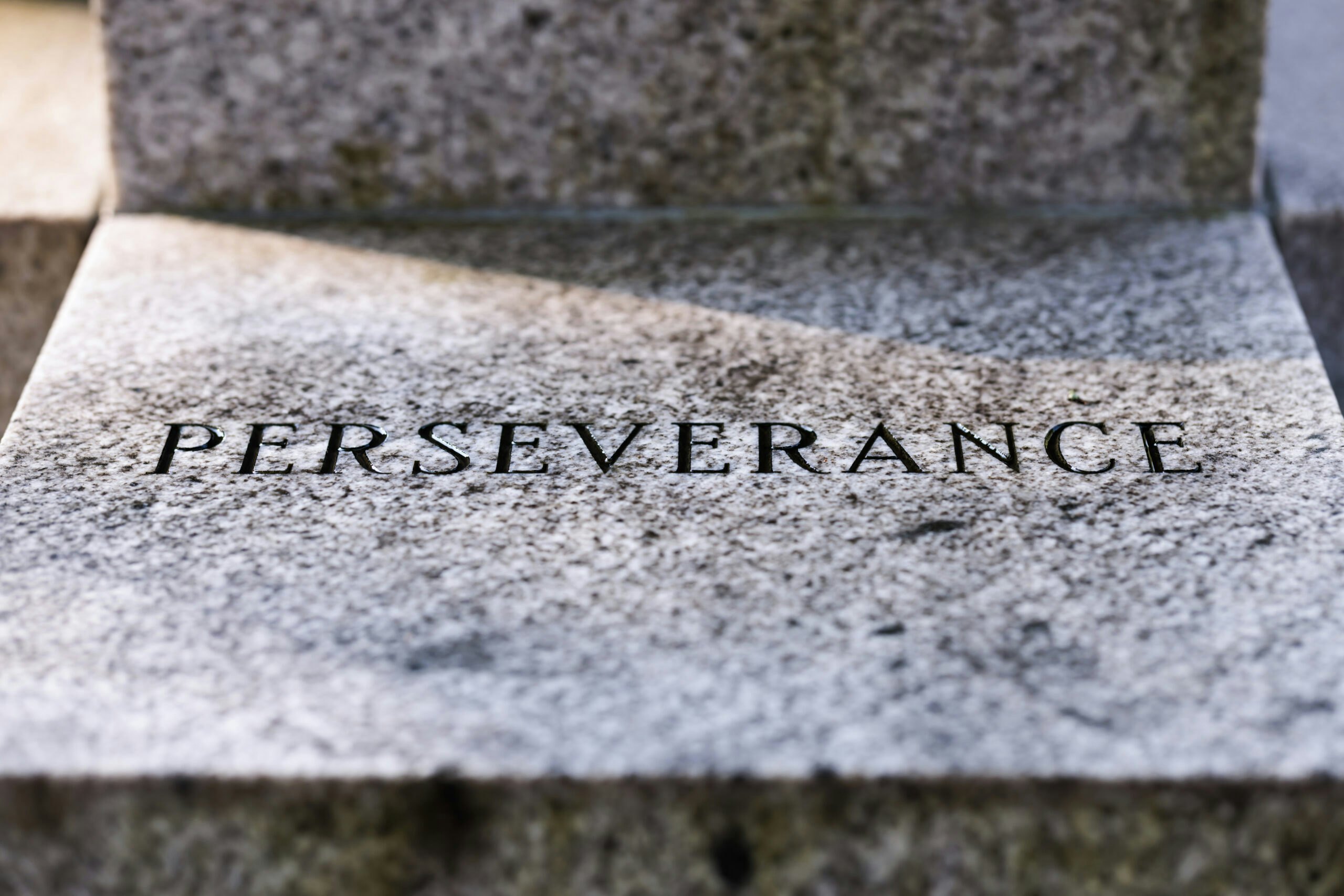Harrison Bernstein, 2022 Stand-To Veteran Leadership Program Scholar and Executive Director of Soldiers to Sidelines, discusses his work helping veterans feel a renewed sense of purpose through football – and how the Veteran Leadership Program taught him the importance of rigor in his work.
Please tell us a little bit about yourself and your personal leadership project.
I am a civilian who has had a deep passion for sports since childhood. I knew then that something in sports would be my vocation. As a young boy, I told my dad that when I grew up, I wanted to be the New York Yankees’ shortstop. His response was, “No son, when you grow up, you want to own the Yankees.” Neither of those things occurred, but nevertheless sports had a tremendous influence on me. The life lessons that I learned through sports from my father and my coaches have brought me success, joy, and deep fulfillment. So, after playing college football and graduating from Johns Hopkins University, I became a sports performance coach, a football coach, a teacher, and a small business owner. This allowed me to provide the same success, joy, and fulfillment for others.
I did not serve in the military, but I was exposed to military service while coaching football in Washington, D.C. After leaving the Washington Redskins (now the Washington Commanders) as a strength coach, I taught in the master’s program in Exercise Science at George Washington University; coached high school football; and was contracted by the National Defense University to do movement analysis on U.S. Army Special Operators at Combat Dive School. This is when I really began to understand the incredible benefits of military service.
The news at the time was dominated by the “broken soldier” story. All we heard about was depression and suicide from veterans returning from the Middle East. A colleague suggested that we could help veterans by providing a sense of purpose by teaching them how to coach football and make them part of the team. Then he suggested we start a nonprofit, call it Soldiers to Sidelines, and that I should run it. I was against the idea because I still wanted to pursue my passion for coaching football. But after approximately six months, I acquiesced.
I had some connections at Walter Reed hospital, and I pitched the idea of a weekend football coaching certification seminar. They loved it and gave us a classroom. Six folks showed up, and it had a bigger effect on me than them. We incorporated as a 501(c)(3), and it became my passion project during my off season.
Soldiers to Sidelines grew organically, and so did my coaching career. I coached college football and then joined the NFL as a volunteer coach with the New York Jets in the off season, which evolved into being offered a full-time position by the defensive coordinator. I was reflecting on all the incredible impact we had on the 123 veterans who came through our program. I was reevaluating why I coach and how big an impact we could make if I gave all my effort to growing Soldiers to Sidelines rather than coaching in the NFL. At my meeting with the head coach of the Jets, where he would officially extend my job offer, I told him I wanted to do Soldiers to Sidelines fulltime. Since that moment in 2019, we have certified over 1,900 Soldier Coaches in eight sports throughout the world. My Veteran Leadership Project personal leadership project at the George W. Bush Institute’s Stand-To Veteran Leadership Program was simple yet massive… certify 10,000 soldier coaches to positively impact millions of young Americans.
Please give us an update on what you have been working on since completing the Stand-To Veteran Leadership Program.
Since completing the Stand-To Veteran Leadership Program, I have been fully committed to executing my personal leadership project to certify 10,000 soldier coaches and provide ever more learning experiences and coaching opportunities. This is an all-hands-on-deck mission which could occupy all hours of every day.
Which lessons learned during the Veteran Leadership Program have stayed with you the most, and how have you put those lessons into action?
Rigor. From day one, Todd Connor (the Veteran Leadership Program’s lead facilitator) talked about the importance of rigor in our work. I have committed to putting in rigor in the way we communicate, our fundraising, our data collection and analysis, and strategic planning. Since graduating from the Veteran Leadership Program, we established a comprehensive five-year strategic plan. We have made pivotal shifts in personnel and fundraising leading to record growth. We analyzed and improved our operations to better serve our soldier coaches. This has already increased our certification rate twofold. Lastly, we invested in determining how best to capture data from our soldier coaches to truthfully and accurately measure impact. This data analysis is only possible because of the lessons learned at the Veteran Leadership Program and the selfless help of the Veteran Leadership Program community. All this work continues with rigor and purpose, and I love it!
Can you discuss the need for helping veterans find renewed purpose after completing their military service and Soldiers to Sidelines’ approach?
Everyone in this world is searching for purpose. Those who find meaning in their routine everyday activities of life are happier. Viktor Frankl wrote in his book Man’s Search for Meaning, that “what man actually needs is not a tensionless state but rather the striving and struggling for some goal worthy of him.” I have observed that the military provides this healthy struggle for a worthy goal and yields a tremendous sense of purpose. Once military service is over, veterans are looking for ways that they can feel valued, needed, and be of service to others. Coaching sports genuinely achieves this. But good positive coaches are at an all-time shortage in this country. We fill this shortage with folks who are rooted in selfless service, trained in leadership, and looking to continue to serve their country as a coach. Like military service, coaching kids is a noble endeavor which can have an enormous positive ripple effect.
Your organization is on its way to 10,000 “soldier coaches” impacting millions of athletes. How have you seen both coaches and athletes find success and inspiration through Soldiers to Sidelines?
We have countless stories from our soldier coaches about how their lives have changed after joining Soldiers to Sidelines and how they have helped so many kids. I’ll share a story in their own words highlighting how Soldiers to Sidelines impacted the veteran and how the soldier coach has impacted an athlete.
Soldier coach Deb Ellison describing an instance where she impacted a young athlete:
Coaching goes well beyond just the court or field. Effective coaching involves getting to know each athlete as a person. It was early October, and I was on my second season coaching youth football. On my team, I had a player, Camren, whom I had coached in previous sports and seasons. Camren was always a friendly and outgoing kind of person and always excited to see me and greet me with a friendly, “Hi Coach Deb.” Midway through the season, Camren started showing up late and even missing some practices. When he did show up to practices, something seemed a bit off. Camren became less talkative and distant from his teammates. It was very uncharacteristic of him. I tried asking him how he was doing and if anything was bothering him. He denied anything was wrong. A couple weeks later, Camren showed up to practice with some unusually placed purple and blue bruises on his upper right arm. Red flags immediately went off in my mind. I knew something was going on. After practice I questioned Camren about the bruises. Right in front of me, Camren started breaking down crying. “I don’t want to go back to school!” Camren cried as tears flowed down his face. My heart sank. I instinctively hugged him and told him I was going to help him out. It was an intensely emotional moment.
I spoke with the youth sports director and voiced my concern regarding Camren’s situation. Speaking with the sports director sparked an investigation. It turned out Camren was being physically assaulted and bullied at school, and some of his teammates were a part of the bullying. Even a teacher was participating in the bullying. Knowing Camren as person and not just as an athlete allowed me to recognize something was wrong. By getting to know Camren as a person, it allowed him to trust and confide in me. I was able to be an advocate for Camren with his parents, and they made the determination to move Camren to a private school where he is doing amazingly. Also, his teammates that were bullying him no longer play on the team.





























